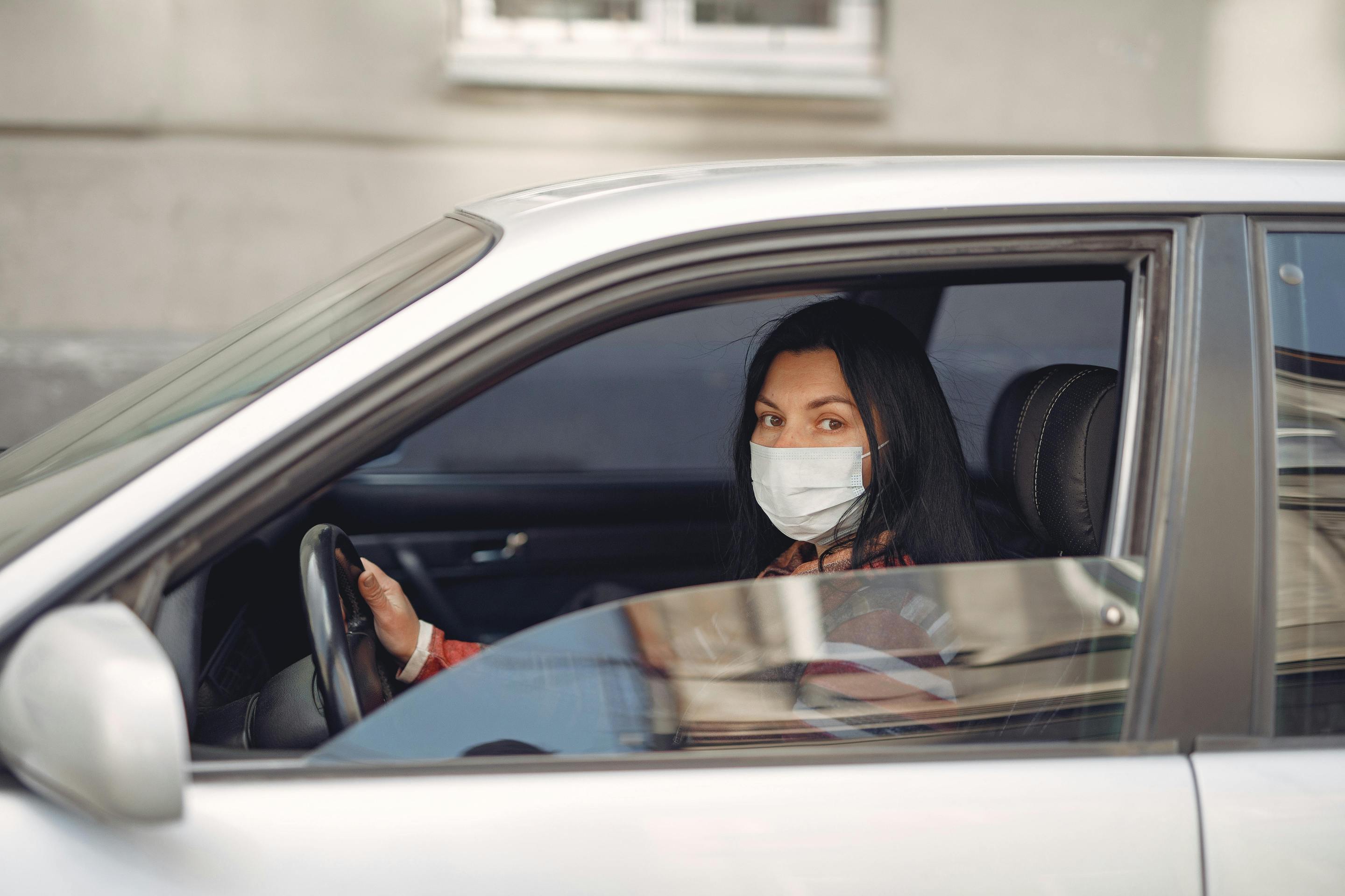Communities with high levels of Covid infection are more likely to have high rates of car crashes, too — and if the virus really is affecting our ability to drive safely, governments must do more to confront its spread and a transportation culture that requires everyone to get behind the wheel even when they're sick, a new study reveals.
In a new analysis of seven states during and after the worst of the pandemic, researcher and physician Baran Erdik found "a 25-percent increase in crash risk associated with acute Covid-19," as measured by high rates of infection in state-cataloged PCR test results and validated against the presence of the virus in local wastewater.
States that made more efforts to mitigate the virus, like instituting stronger mask mandates, had lower rates of COVID overall, and also lower rates of total crashes. Vaccinations, though, were not found to be "protective" against car crashes, even as doctors broadly agree they are protective against hospitalization and death.
That finding doesn't necessarily disprove all the other hypotheses about why car crash deaths surged during the pandemic, including the fact that drivers were able to hit deadlier speeds on otherwise-empty streets during quarantine — or the fact that the riskiest drivers were more likely to ignore stay-at-home orders and take to the open road. But it could add a new dimension to the debate about why U.S. streets have remained so dangerous even as travel patterns have largely returned to normal.
"Correlation never proves causation; I always joke that I want that on my tombstone. ... But ultimately, [those earlier hypotheses alone] just don't add out," added Erdik, whose study was published in the journal of the Public Library of Science's Journal of Global Public Health. "Because if those factors [told the whole story], what you'd be seeing was more deaths and more severe crashes. I looked at the total crash volume. ... And this was a global pattern across diverse cultures with different restrictions."
Erdik argues that researchers are just beginning to understand how the novel coronavirus affects the brain over time, much less how it affects the complex task of driving, specifically.
He cites recent studies that have found Covid may be able to "disrupt" or "leak" through the blood/brain barrier, which researchers believe could help explain the symptoms of "brain fog" (and even lower IQ scores) reported by many who contract the virus. There's also mounting evidence that Covid may remain in some people's bodies even when it's no longer showing up on tests, further complicating the picture of how Covid impacts our driving ability.
Erdik even compares "driving under the influence of Covid" to "driving impairments seen with alcohol consumption at legal limits"— limits which many researchers say are dangerously high.
"All this data is accumulating about how we are most likely not actually clearing this [infection], and it's most likely sticking in different reservoirs in your body — and some of it may be in your brain," Erdik added. "It just got me thinking about whether this would have an effect [on driving, too]."
Erdik acknowledged that his study has limitations. While he could control for how seasonal changes in driving volumes impacted crash totals, he couldn't control for the volume of uninsured motorists who simply didn't report their crashes — especially during a global pandemic when a lot of of unemployed people couldn't afford to pay their deductibles. And of course, he couldn't ask every individual driver involved in a crash whether they'd personally contracted Covid in the recent past, even if community-level data indicated that it was statistically more likely that they had.
Still, Erdik said that even the possibility that the virus is making drivers less safe demands systemic action — both to decrease viral transmission and to decrease car dependence. He particularly hopes that communities will take the right to clean air as just as seriously as the right to clean water by ensuring that there's sufficient air exchange and air filtration in crowded public buildings, hospitals, transit vehices, and other high-risk places.
Car-dependent places, meanwhile, should more aggressively mandate workplace policies that allow workers to stay at home when they're sick, and to develop active, outdoor alternatives to getting behind the wheel when they absolutely have to report for duty.
Until that happens, though, Erdik hopes that at least individual motorists will think about how Covid might be impacting their performance — and maybe think twice about driving when they're under the weather.
"People can't necessarily take time off work if they're sick — but if they're sick and driving, or if they feel what has been contemporarily described as brain fog, they should at least try to pay a little bit more attention," he adds. "Because at the end of the day, you're driving around in a two-ton metal box; the pedestrian or the cyclist next to you is not protected at all. Even if you're sick and you have to drive, if you don't pay attention for one second, the result is gonna be bad."






